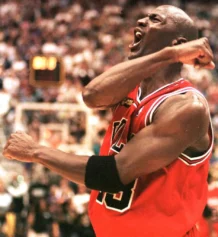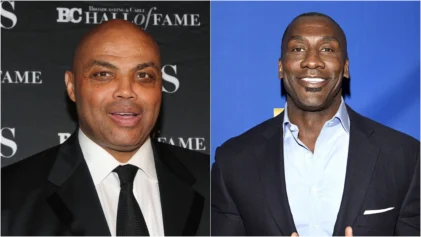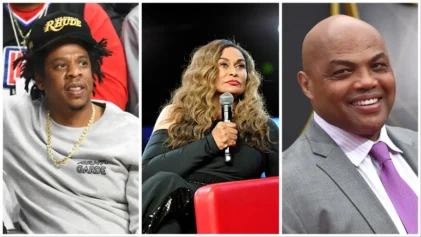
Why people run to him about questions on race boggles the mind as it is. And he feeds into it, offering perspectives that lack depth, perspective and heart.
It was one thing last year when he said he supported the George Zimmerman not guilty verdict in the killing of Trayvon Martin. Now comes word that he is OK with the Ferguson grand jury’s decision to not indict officer Darren Wilson in the shooting death of unarmed teenager Michael Brown.
This stance by mouth-all-mighty Barkley is more egregious and disrespectful to Black life than the Martin verdict because he’s saying the case was not even worth being tried in court, that it was clear Wilson acted justly and that he should not have to face a jury of his peers.
For Barkley to take the position that Wilson should not have to defend himself on killing a kid under suspect circumstances just feels like he’s playing to the uncommon Black sentiment, for reasons beyond comprehension. That’s his choice, but it does not feel right or genuine.
Most who are outraged by the grand jury’s decision feel that way because, in essence, it sends the message that a cop can shoot and kill a Black at his leisure without having to show just cause. In a place were liberties are supposed to be equal, Black America seems under fire, literally, by the very people who have vowed to serve and protect it.
Barkley again sees it differently, which is his right. But it gives us a hint into his world that is so unlike that of everyday Black people in the United States. He’s a rich celebrity who seems to live in a bubble. A big one.
“The true story came out from the grand jury testimony,” Barkley said on 97.5 FM radio in Philadelphia. He said “key forensic evidence, and several Black witnesses that supported Officer Darren Wilson’s story” convinced him.
The true story? That sounds eerily like his comments following the Zimmerman trial.
What about the witnesses who contradicted Wilson’s outlandish version? What about fairness? No disregard to Wilson’s rights, but he pulled the trigger and neither he nor anyone should be able to walk away from it without going to trial.
Barkley, who works on television, said: “I can’t believe anything I hear on television anymore. And, that’s why I don’t like talking about race issues with the media anymore, because they (the media) love this stuff, and lead people to jump to conclusions. The media shouldn’t do that. They never do that when Black people kill each other.”
If he doesn’t want to talk about it, why is he talking about it? Because Barkley loves to talk, that’s why, and we love to listen because he’s subject to say anything at any time. But this isn’t about how bad the New York Knicks are. This is about the steady devaluing of Black life.
“[W]e have to be really careful with the cops,” the genius Barkley said, “because if it wasn’t for the cops we would be living in the Wild, Wild West in our neighborhoods. We can’t pick out certain incidentals that don’t go our way and act like the cops are all bad. . . Do you know how bad some of these neighborhoods would be if it wasn’t for the cops?”
He’s right about the need for police protection, but what does that have to do with Wilson shooting Brown? Seems Wilson was looking to protect himself over the citizenry, firing shots in an open space where people were nearby. And Wilson’s version of the events rang as true as a broken bell.
There were too many versions of what took place that were unclear, too many questions that needed to be examined thoroughly in court to let him just walk. It’s a bit disconcerting for a Black man (from Alabama, no less) who has a voice on TNT’s Inside the NBA to consistently take the position that Black life does not weigh as much as others.
Barkley, again, leaves us scratching our heads and wondering if we should take him seriously. . . or if he’s even serious.


